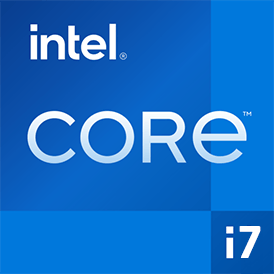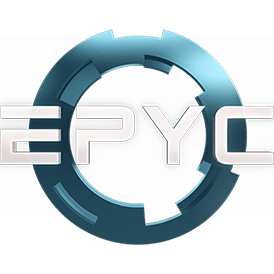
What's the best choice AMD Epyc 7251 or Intel Core i7-9700? Which processor is faster?
We have prepared a comparison to help you choose the best processor. Compare their specifications and benchmarks.
AMD Epyc 7251 has a maximum frequency of 2.10 GHz. 8 Cores. Power consumption of 120 W. Released in Q3/2017.
Intel Core i7-9700 has a maximum frequency of 3.00 GHz. 8 Cores. Power consumption of 65 W. Released in Q2/2019.
 Reasons to consider
Reasons to consider Place in the overall ranking
(based on several benchmarks)
Common positions AMD Epyc 7251 CPU in popular benchmarks, for comparison with other models.
 Reasons to consider
Reasons to consider Place in the overall ranking
(based on several benchmarks)
Higher clock speed
Around 30% better clock speed
Higher turbo clock speed
Around 38 % better overclocked clock speed
Performance per watt
About 0.54 times less performance per watt
Common positions Intel Core i7-9700 CPU in popular benchmarks, for comparison with other models.
 AMD Epyc 7251
AMD Epyc 7251

Background information about the processors being compared, series, generation and market segment.
Basic parameters such as number of cores, number of threads, base and turbo frequency, and cache size. These parameters indirectly tell about the speed of the processor, the higher they are the better.
Internal Graphics does not affect the performance of the CPU, performs the work of the graphics card in its absence or on mobile devices.
Built-in codecs used to encode and decode content. Significantly speeds up the required operations.
Types, channel quantity of RAM supported by Intel Core i7-9700 and AMD Epyc 7251. Depending on the motherboards, higher or lower memory frequencies may be supported.
Compare the TDP requirements of TDP AMD Epyc 7251 and Intel Core i7-9700 to select a cooling system. Note, the TDP value refers to thermal watts, not electrical watts.
Architecture, interfaces, additional instructions supported by AMD Epyc 7251 and AMD Epyc 7251, virtual machine technologies and process technology.
Based on the results of several benchmarks, you can more accurately estimate the difference in performance between AMD Epyc 7251 and Intel Core i7-9700.
Compare the synthetic test values and choose the best processor!